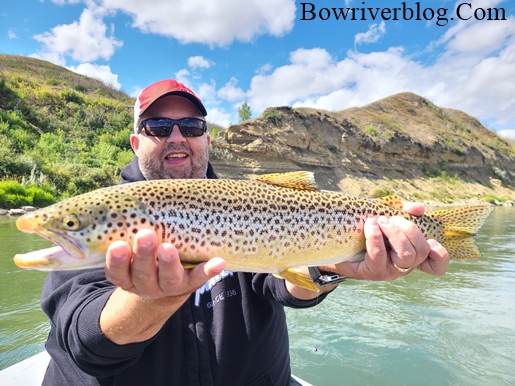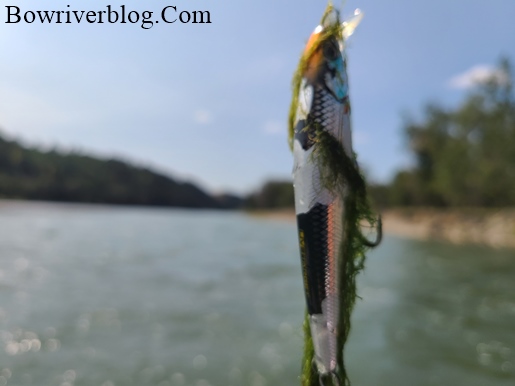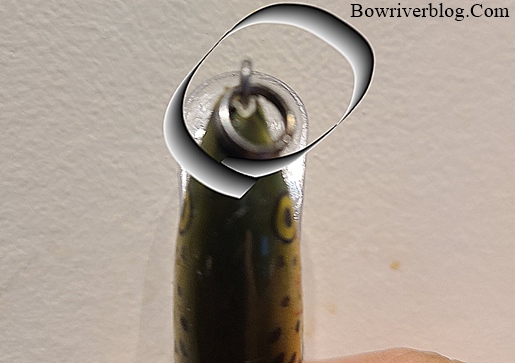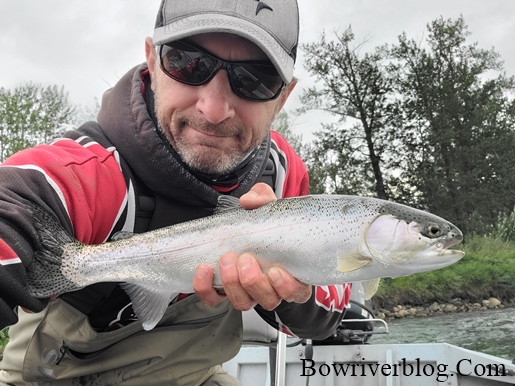Why paying close attention on the water will get more fish in the net.

For those that want to increase your catch ratio and put more fish in the basket, paying attention to details while on the river will get you more fish. Often, I see a friend or client going to make a cast with weeds on the hook, or the line caught in the hook. They get ready to make their next cast and I stop them abruptly telling them “Hey, you might want to get those weeds off your hook, or the line off the hook”. Making a cast with these issues is a total waste of energy and time! Paying attention while on the water is vital for those anglers that take their fishing, and their time on the water very seriously.
Let’s face it, most of us are there to have fun but the point when you’re a serious angler, is to catch fish. When your hook is not tuned properly, swimming sideways on every cast, you are probably not going to get that net wet often. Paying attention to the small details will make your time on the water more enjoyable and more productive. Some of the things I pay close attention to are as follows.
Rising Fish.
Seeing fish rise means a few things to me. One, there are fish in the area and two, those fish are actively feeding. I am constantly scanning the water to watch for rising fish. Once I see those fish rising, I will cast my offering onto the same side of the river the fish are actively feeding, and many times get rewarded with a fish. If I do not see any fish rising, I can either leave the area or chose to use a lure that will dive deeper into the water column and pick up fish that way. Remember, when it gets to hot the fish will not budge off the bottom, so using a deeper diving crank bait will put fish in the boat. I always have two rods rigged up, one with a shallow diving crank bait and one with a deep diving crank bait. Once I figure out what side of the river the fish are on, I pay close attention to what kind of water they are holding, and or feeding in. Is the water deep and slow, or is the water deeper and bumpy with flow or without flow, etc. Looking for this when fishing a river will help you dial in what kind of water the fish are holding in that day. As the day progresses, you will most likely find fish in the same type of water along the journey downstream.
Is your lure working properly?

It’s important to make sure your lure is swimming effectively right out of the boat launch, from the very first cast. I have opened the package on a brand-new lure, and it has not worked properly right out of the box. If this is the case, you can tune the lure with a pair of needle nose pliers. Upon inspecting the lure, you will see that the wire loop on the nose of the hook will be bent to one side of the lure or the other. Taking your needle nose pliers, and gently bending the wire loop one way or the other, will bring the hook back into balance, making it swim proper and true. Notice how this lure is bent in the image below.

I would take my pliers and gently bend the wire to the left of the hook, making it as straight as possible. After I tune the lure, I will make a cast to make sure the lure is running straight and true. I can adjust as necessary, until the hook is in balance. If the hook does still not work as it should, I will place it back into the package and use another hook. Make sure you keep your receipts from the tackle store in case you need to return a lure back to the store!
Colors of the lure!
Some days the color of the lure plays an important factor in success. The fish will key into one color and smash it all day long. On clear water days I like to use natural color patterns such as silvers, golds, rainbow trout or brown trout color patterns. On murky water days, or stained water conditions, I will throw hot color patterns such as hemi-oranges, pinks, pure white’s or lime green colors. I pay close attention to what the fish are feeding on in terms of colors. That will lead more fish to your lures and put more fish into your net. The size of the lure and the action of the lure are also important to note here. Paying close attention to all these things listed here will increase your odds every time you fish.
Are your hooks sharp?

Often, I will catch fish and for some reason, they keep getting away. A dull hook or a bent hook will most likely be the cause. I always keep spare hooks in my backpack for this reason. Its common, especially when you fish as much as I do, that after many fish caught and released, the hooks on the lure will get dull. I can either use a hook sharpener or simply replace the hook that has gone dull. It’s important to me, particularly when I am guiding, that all hooks are sharp and will do their job properly.
All these tips will help you focus on catching more fish. It is important to pay attention while on the water so you can be more productive and ultimately put more fish in the net. I hope this article helps you in some way, shape or form. So remember, PAY ATTENTION!
Cheers,
~Mike
